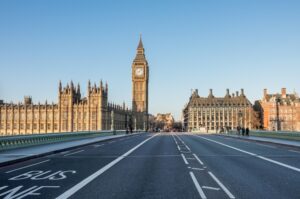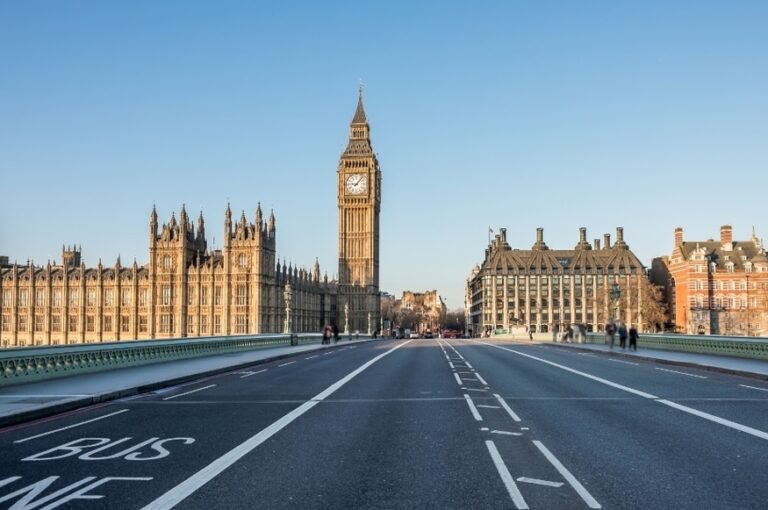Mayor of London, Sadiq Khan, and Transport for London (TfL) have announced plans to transform parts of central London into one of the largest car-free zones in any capital city in the world.
This is said to be necessary to enable safe social distancing on public transport in London as lockdown restrictions are eased, and aims to help support increased walking and cycling and improve the city’s air quality.
Some streets will be converted to walking and cycling only, with others restricted to all traffic apart from buses, as part of the mayor’s latest Streetspace measures.
Access for emergency services and disabled people will be maintained, but deliveries on some streets may need to be made outside of congestion charging hours.
Waterloo Bridge and London Bridge may be restricted to people walking, cycling and buses only, with pavements widened to enable people to safely travel between busy railway stations and their workplaces.
TfL said it is looking into providing zero-emission capable taxis with access to both these bridges, and other areas where traffic is restricted.
TfL added that it is working with those boroughs who are keen to do more to bring in changes to their roads in the coming days and weeks.

It has so far added around 5,000m2 of extra space on footpaths across London, giving people space to safely walk and queue for local shops while maintaining social distancing.
Work has begun on the first temporary cycle lane along Park Lane where the speed limit will also be reduced to 20mph to reduce road danger.
In line with the City of London’s plans to make its busiest roads car free as lockdown is eased, TfL is also working with the City of London Corporation on options to improve routes between Old Street and Bank, and between Cannon Street and Holborn to Bank for walking and cycling.
TfL has also confirmed that the Congestion Charge and Ultra Low Emission Zone (ULEZ) have been reintroduced (as of Monday 18 May) to further reduce congestion and pollution.
As a temporary measure, it is also proposed that the Congestion Charge will increase to £15 and the hours of operation extended as part of a package of temporary changes.
These changes will be monitored and form part of a wider review of the Congestion Charge as agreed with the government as part of the TfL funding deal.
Khan said: “Covid-19 poses the biggest challenge to London’s public transport network in TfL’s history.
“It will take a monumental effort from all Londoners to maintain safe social distancing on public transport as lockdown restrictions are gradually eased.
“That means we have to keep the number of people using public transport as low as possible.
“And we can’t see journeys formerly taken on public transport replaced with car usage because our roads would immediately become unusably blocked and toxic air pollution would soar.
“We will need many more Londoners to walk and cycle to make this work. That’s why these plans will transform parts of central London to create one of the largest car-free areas in any capital city in the world.”
Khan admitted that this will be difficult for many Londoners. “It will mean a fundamental reimagining how we live our lives in this city. And this transformation will not be smooth,” he said.
“But I promise to be as clear and upfront with Londoners as possible about what we are doing, why and exactly what we need from you in order to keep us safe.”
Read more from CiTTi
https://www.cittimagazine.co.uk/tfl-receives-1-6bn-government-bailout/
https://www.cittimagazine.co.uk/walking-and-cycling-at-heart-of-london-transformation-plan/





